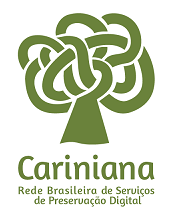Music and poetry in Chico Buarque de Hollanda's trickery songs
DOI:
https://doi.org/10.5433/boitata.2007v2.e30705Keywords:
Poetry, Song, Chico Buarque, Modernity, Comparative literatureAbstract
From the estimated that the song is a hybrid gender composed of poetry and music, a tradition for its poetical and musical portions is established. The bases of the tradition of modernity established in Baudelaire make echo in the elaboration of the poetical lyrics. Thus, we can see that the popular song of our days is characterized by the immersion in the popular culture, conceived in the crossing of the multiple languages that were fortified on the way to modernity. The musical song-work of Chico Buarque de Hollanda is presented as a paradigm of this context. The update of the tradition of the samba, inside the songs which have the shirker as the theme, reinforced by the tradition of the poetical lyrics, characterizes the peculiarity of the Buarque's song in which the performance and the melodic structure are seen as factors of the song gender consolidation.
Downloads
References
BENJAMIN, Walter. Charles Baudelaire, um lírico no auge do capitalismo. tradução de J.C.M. Barbosa e H.A. Baptista. Obras escolhidas. São Paulo: Brasiliense, 1989.
BUARQUE DE HOLLANDA, Chico. SONG BOOK. vol 1,2. São Paulo: Companhia das Letras, 1990.
GOUVEIA, Arturo. A malandragem estrutural. In FERNANDES Rinaldo (Org.) Chico Buarque do Brasil: textos sobre as canções, o teatro e a ficção de um artista brasileiro. Rio de Janeiro: Garamond: Fundação Biblioteca Nacional, 2004.
MENDONÇA, Luciana Ferreira Moura. Literatura e Oralidade: da canção poética à canção popular. Tese de Doutorado. UFCH/UNICAMP, 2005.
MENEZES, Adélia Bezerra de. Desenho mágico. Poesia e política em Chico Buarque. São Paulo: HUCITEC, 1982.
MENEZES, Marco Antônio de. A dessacralização da vida e da arte no século XIX História: Curitiba: Editora UFPR. Questões & Debates, n. 39, p. 221-253, 2003.
NAPOLITANO, Marcos. Seguindo a canção -Engajamento político e indústria cultural na MPB (1959-1969). Campinas: UNICAMP, 2001.
PAZ, Octavio. O arco e a lira. Tradução de Olga Savary., 2 ed., Rio de Janeiro: Nova Fronteira, 1982.
POUND, Ezra. ABC da literatura. Tradução de Augusto de Campos e José Paulo Paes. São Paulo: Cultrix, 1970.
SANT'ANNA, Affonso Romano de. Chico Buarque: a música contra o silêncio. In FERNANDES Rinaldo (Org.) Chico Buarque do Brasil: textos sobre as canções, o teatro e a ficção de um artista brasileiro. Rio de Janeiro: Garamond: Fundação Biblioteca Nacional, 2004.
TATIT, Luiz. Musicando a semiótica: ensaios. São Paulo, Annablume, 1997.
TATIT, Luiz. Semiótica da canção - Melodia e letra. Escuta, 2 ed. 1999.
TATIT, Luiz . Tensões da dor. In: FERNANDES Rinaldo (Org.) Chico Buarque do Brasil: textos sobre as canções, o teatro e a ficção de um artista brasileiro. Rio de Janeiro: Garamond: Fundação Biblioteca Nacional, 2004.
WISNIK, José Miguel. O som e o sentido. São Paulo: Círculo do Livro/ Companhia das letras, 1989.
ZAPPA, Regina. Chico Buarque: Para todos. 6 ed. Rio de Janeiro, Relume Dumará, 2004.
ZUMTHOR, Paul. Escritura e nomadismo. Tradução de Gerusa P. Ferreira; Sônia Queiroz. São Paulo: Ateliê, 2005.
Downloads
Published
How to Cite
Issue
Section
License
Copyright (c) 2007 Boitatá

This work is licensed under a Creative Commons Attribution 4.0 International License.
Boitatá esta licenciada com CC BY sob essa licença é possível: Compartilhar - copiar e redistribuir o material em qualquer suporte ou formato. Adaptar - remixar, transformar, e criar a partir do material, atribuindo o devido crédito e prover um link para a licença e indicar se mudanças foram feitas.





















